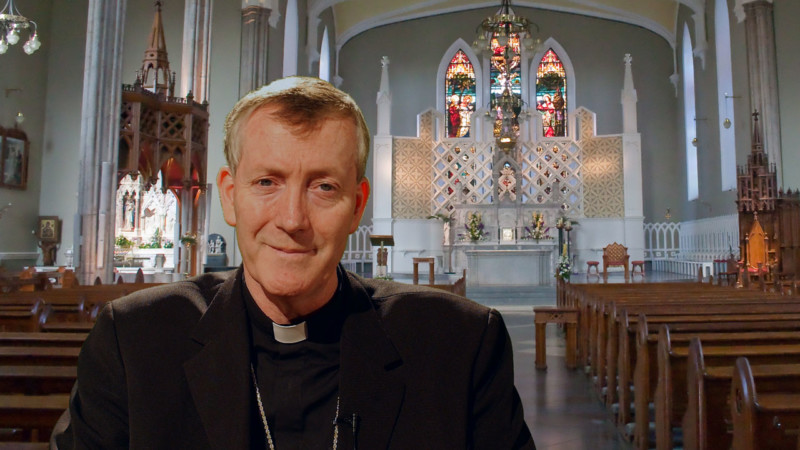Bishop Denis Nulty, Bishop of Kildare and Leighlin, has issued a pastoral message to the faithful of the diocese on the right to life of the unborn. The message, titled Supporting a Culture of Life, was delivered to Masses over the weekend in the 56 parishes of the diocese.
Bishop Nulty began his message, ‘On 25 May, a referendum will be held on the question of removing the right to life of the unborn child from the Constitution of Ireland. I want to explain in these short words why I will be voting No.
‘Let me state the obvious at the outset. There is no easy way to talk about abortion. I am very conscious of those who are affected by their choice to have an abortion at some point in the past. I believe that there is real grieving in the wake of an abortion and that compassion and care should be our first response. I pray for all who seek healing.
He continued ‘My concern here is not to dwell on the past but to safeguard the future. Nothing is as important for the future of our shared humanity as the right to life. Therefore, I wish to speak boldly and clearly.
‘I do not believe that life begins at birth. I believe that life begins before birth. Think of the simple scene we have all witnessed countless times of family and friends craning their heads to look into a buggy to marvel at a new born child. I even watched this very scene unfold on the platform of a train station recently, strangers admiring a baby in its mother’s arms, wondering if it was a boy or a girl, the age and the name. This wonder does not start at birth. The time a child first kicks in the womb and the time a child takes its first faltering steps are but different moments on the same journey.’
Bishop Nulty went on to say, ‘You might take a moment to bring your hand close to your face and consider your fingerprints. I have invited every congregation at Confirmations this year to do this simple action. It is a powerful sight. Fingerprints are unique to you. When did they first form? Much earlier than we might imagine. Likewise, our own heartbeat, when did it begin? All of this is determined in the womb, long before birth. Indeed, it is written into our genetic code.’
He continued, ‘There is nothing to be gained by denying the truth that our lives begin at conception. What we have learned about our development in the womb will only be added to in the years ahead, but we already know enough. However, regrettably, the abortion debate is not really about biology. Everyone knows that a life has begun. The question is: whether it is right to deliberately stop that life being born?
‘Some people argue strongly that a pregnant woman should have an absolute right to choose the fate of her pregnancy. I cannot agree. I believe that none of us – women or men – have an absolute right over the life of another.
‘It does not serve the truth to minimise abortion, for what it is, and how prevalent it can become. We cannot pretend that abortion can be reduced to taking a pill in the first weeks. This is not the reality. The hard truth is evident to everyone in the statistics from the UK and elsewhere. Once we deny the right to life of the unborn, we can no longer defend ourselves from what flows from an abortion culture.
‘For instance, we are in deep denial if we cannot recognise that an abortion culture fundamentally alters our attitude towards disability. The statistics in this regard from other jurisdictions do not lie.’
Bishop Nulty concluded, ‘This leads us on to profound issues about the future of our shared humanity. I believe that a culture that permits abortion cannot be separated from a culture that seeks full control over the gift of life. In recent years, I have the sense that we are walking with our eyes closed into an era of eugenics, unwilling to look where we are going but still continuing on. I know I am not alone in thinking this.
‘Some claim that we have been behind the times in Ireland in regard to abortion. I would argue the very opposite; that upholding the right to life of the unborn is timely and far-seeing. We risk compromising our humanity if we do not continue to be supportive of life, even when this poses great difficulties. Therefore, for all of the above reasons, on 25th May I will be voting no to affirm human life and thereby the common good. I ask you to join with me in voting to retain the Constitutional right to life of the unborn child.
‘Of course, voting no is not enough. The real challenge for us is to work even harder to strengthen a culture that values all life. Being pro-life must mean that we advocate for all who are in need of protection in our society. Let us rededicate ourselves to this essential and blessed task.’
The full text of Bishop Nulty’s message can be found on www.catholicbishops.ie. Please visit www.chooselife2018.ie for more resources on the unborn child’s right to life, including links to the weekly Choose Life 2018 newsletter.


